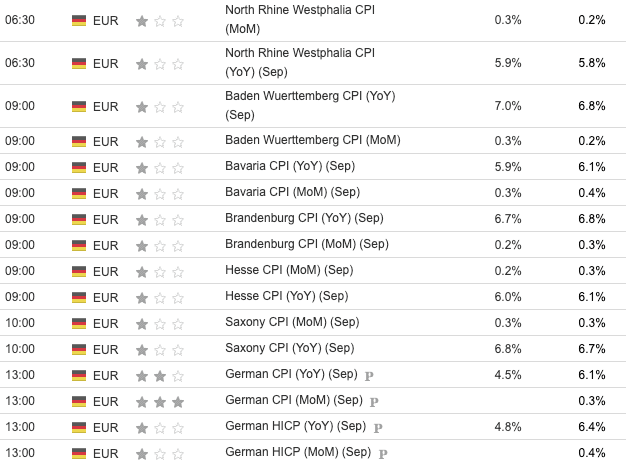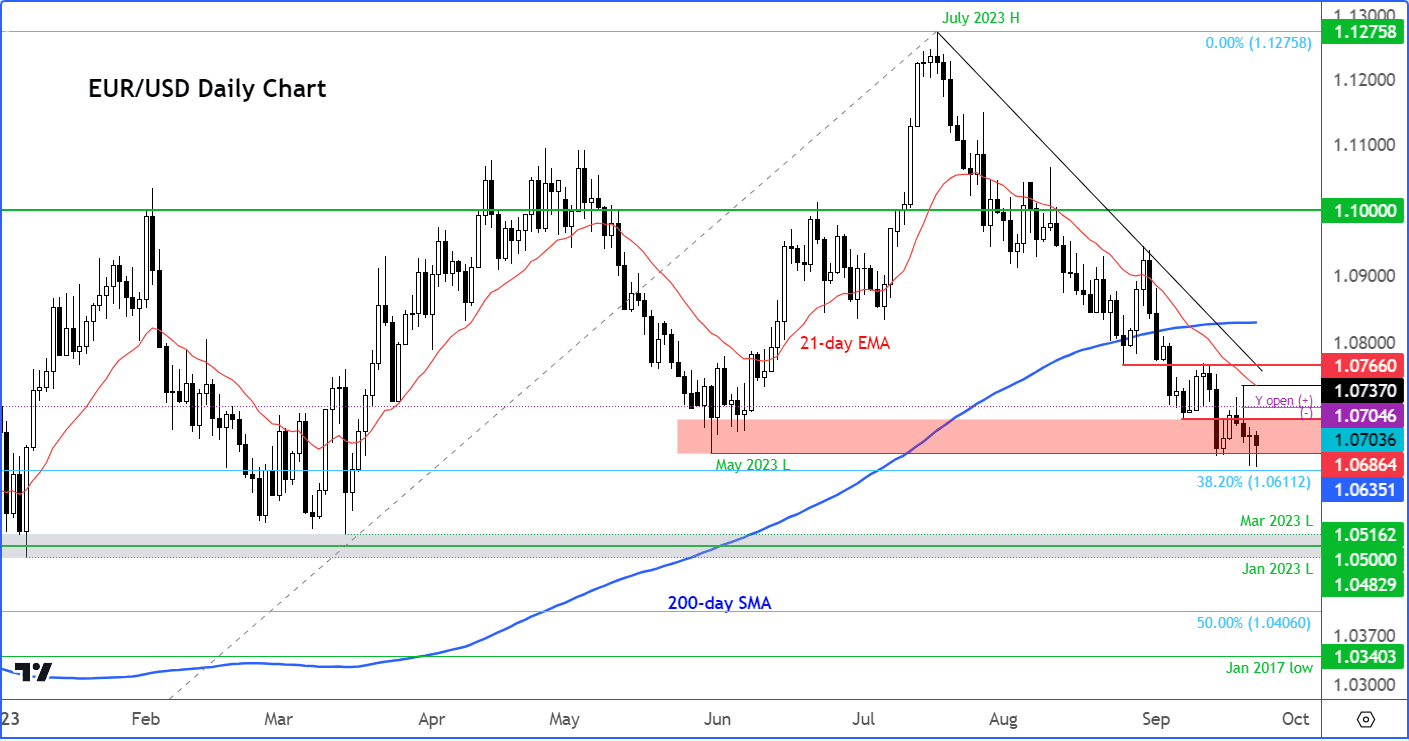Euro-Dollar 5-day Forecast: More Progress to 1.05
- EURUSD completes 11 weeks of successive declines
- Little reason to believe the weakness is complete
- 1.05 in view over coming weeks
- But decline could be halted by strong Eurozone inflation release

Image © Adobe Images
The Euro to Dollar exchange rate remains vulnerable to further losses and looks set to take another step towards the 1.05 level over the coming days, although Eurozone inflation on Friday could offer some relief.
The Euro is down nearly 5.5% since it turned direction in mid-July and has now completed ten successive weekly losses, a rare feat for the pair.
Direction of travel therefore remains firmly to the downside with Eurozone economic data remaining unsupportive and reinforcing a view that the European Central Bank (ECB) has completed its hiking cycle with the next move being a cut. At the same time, the U.S. economy looks firm enough to support a potential November hike.
The Euro-Dollar tripped to fresh six-month lows last week after the Federal Reserve kept alive the prospect of such a hike, but the decline in expectations for Fed cuts in 2024 had the greater market impact.
"With economic activity remaining rather poor in the Eurozone, and the ECB having paused its rate hiking cycle earlier than expected, the EUR/USD outlook remains bearish until such a time that Eurozone macro pointers start to improve again, or US data deteriorates so sharply that it brings the time of the Fed’s inevitable rate cuts significantly forward," says Fawad Razaqzada, an analyst at City Index.
Image courtesy of City Index.
For now, Razaqzada looks for Euro-Dollar to continue to find sellers on any bouts of strength.
"The next downside target is around the 1.05 handle, which is where the lows of January (1.0483) and March (1.0516) were approximately formed," he says.
Looking at the calendar, there is little on tap until Friday to shake the Dollar's trend of appreciation.
U.S. PCE inflation figures are due and can further support the recent trend of Dollar firmness if they come ahead of expectations.
Core PCE is expected at 0.2% month-on-month in August, with any undershoot potentially aiding a comeback in the Pound, particularly if UK GDP data beats expectations.
But the Eurozone should attract the most attention with inflation figures from Spain, Germany and France due for release ahead of Friday's Eurozone figures.
Headline Eurozone CPI inflation is forecast at 4.6% y/y, down from 5.2% previously. Core is forecast at 4.9% y/y, down from 5.3%.
"Base effects are likely to have played a role. For energy prices, we expect an increase on a monthly basis as the price of oil products surge, while the yoy rate will probably decline, shaving 0.2pp off headline inflation," says a note from UniCredit Bank.
"The ongoing slowdown in food inflation might have a similar impact. The expected decline in core inflation would reflect easing underlying pressure and a large base effect on transportation costs in Germany," it adds.
Note, though, that German inflation is due the day before and recent history has told us that this can have a greater impact on the markets given it tends to set the tone for the Friday release. Indeed, recent months have seen the market moves spent prior to the Friday release.
And to complicate matters, the German figure is often front-run by the release of state data which dribbles in through the day:


